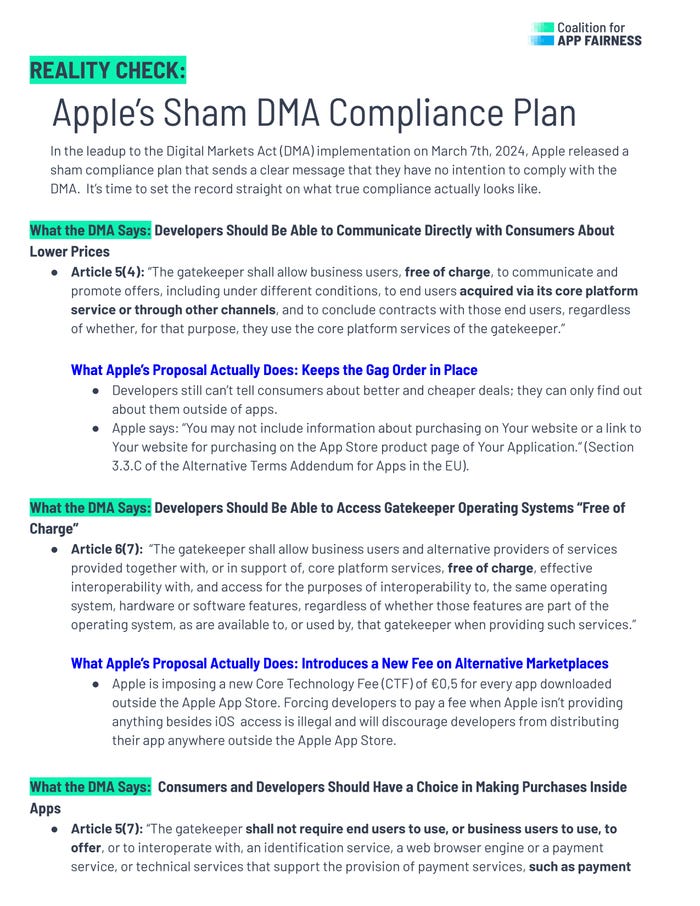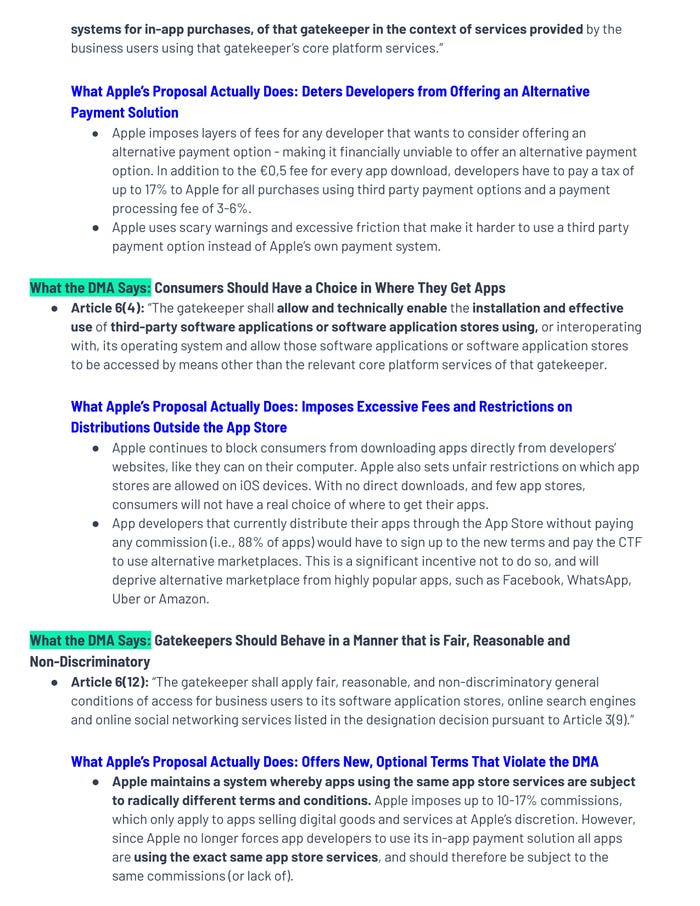Apple once more throws down the gauntlet to the EU over the DMA
US gadget giant Apple has announced its latest concessions to the EU Digital Markets Act but, once more, they seem to go against at least the spirit of it.
March 13, 2024

“More options for apps distributed in the European Union” declares the latest update on Apple’s developer website. This is a slightly belated gesture of compliance with the DMA, which came into effect last week. The main concession highlighted in the Apple announcement is ‘a new way to distribute apps directly from a developer’s website.’
The primary gripe app developers such as Epic and Spotify have against Apple (and Google) is that, if they want to distribute their apps on iOS or Android, they’re forced to do so through, respectively, the App Store and Play Store. This, in turn, obliges them to adhere to the many rules attached to those stores, including a 30% commission on every initial and subsequent commercial interaction that takes place via the app.
This is commission ostensibly a charge for using the platform’s proprietary payment processing system, but is far in excess of the commissions charged by the likes of Visa and Mastercard, and is clearly only made possible by the de facto payment processing monopoly held by those platforms. So the key concession sought by developers is the ability to bill their customers via alternative payment processors, who charge far less for the privilege.
On the surface, these tweaks from Apple seem to address this matter. Within the EU, developers can now offer alternative app marketplaces and allow customers to include links to external locations to complete their digital purchases. But, as ever, the devil is in the detail, and, if Epic CEO Tim Sweeney is anything to go by, developers are still dissatisfied.
We’ve copied a ‘reality check’ on the new Apple terms from the Coalition for App Fairness, of which Epic and Spotify are members, below. As you can see, they reckon Apple is still not complying with the DMA. Apple presumably thinks it is, at least by the letter of the law, so, once more, it will be down to Thierry Breton and his merry band of eurocrats to adjudicate.


Spyglass has done a good job of highlighting the terms that seem to add unnecessary friction and cost to the process. Firstly there is an arbitrary new charge to use this new feature. And then there’s the stipulation that, to even qualify, a developer must be ‘a member of good standing in the Apple Developer Program for two continuous years or more, and have an app that had more than one million first annual installs on iOS in the EU in the prior calendar year.’ This seems to rule out nearly everyone, including Epic and Spotify.
Apple is clearly testing the parameters of the DMA. The above ‘reality check’ suggests non-compliance, but it seems likely that the DMA has been drafted in a sufficiently ambiguously way to allow such shenanigans. Maybe Apple is doing the EU a favour by stress-testing the DMA in this way but surely, sooner or later, its wording will need to be tightened significantly, in order to put an end to this increasingly tedious game of chicken being played by a company apparently determined to rent-seek as rapaciously as it can get away with.
About the Author(s)
You May Also Like











_1.jpg?width=700&auto=webp&quality=80&disable=upscale)


.png?width=800&auto=webp&quality=80&disable=upscale)